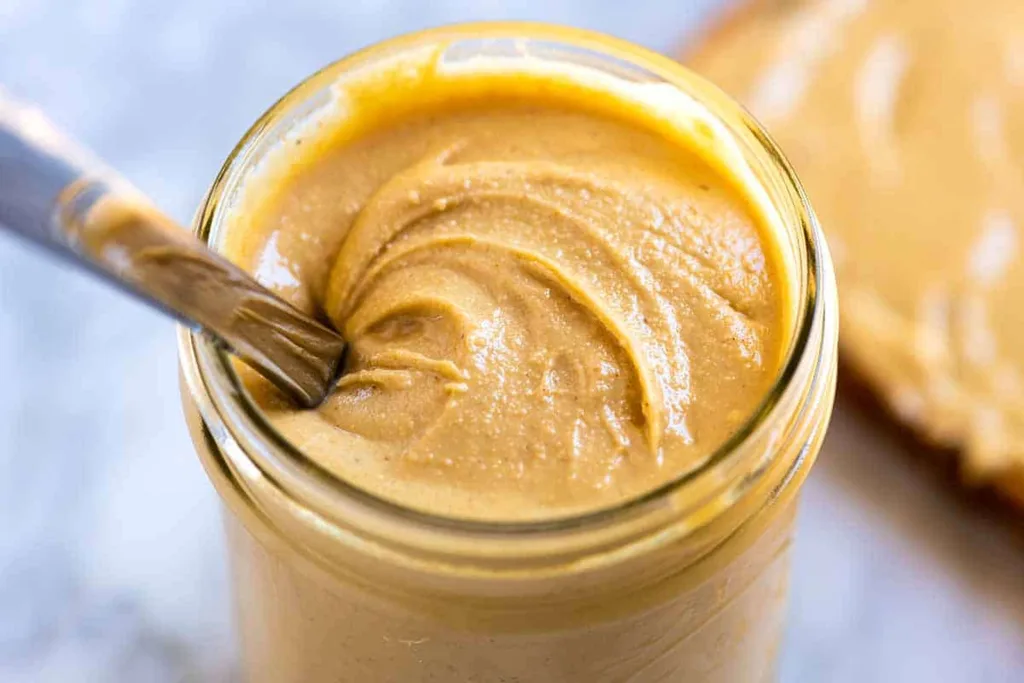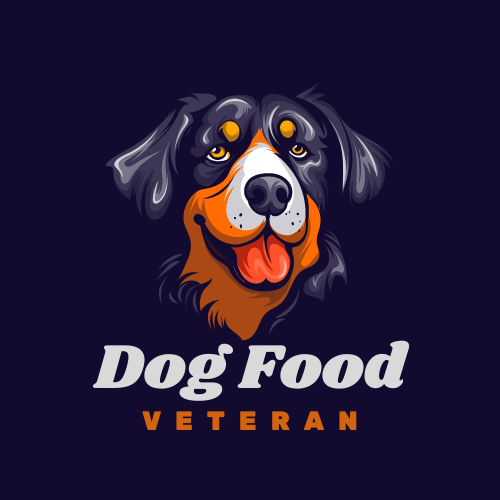No, I’d strongly not recommend cashew butter for your dogs.

Is Cashew Butter Safe for Dogs?
As delicious as this treat is, it is not safe for your pup. Here’s a look at why you should avoid it completely:
It is Toxic: Cashews contain a toxic protein called urushiol, which is also found in poison ivy. Urushiol can cause severe stomach upset, vomiting, diarrhea, and lethargy in dogs. To make matters worse, some dogs may have an allergic reaction with symptoms like rash, itching, and difficulty in breathing.
High-Fat Content: The fatty content in cashew butter is around 63% fat which is very high and this figure is particularly not healthy for your pup. It makes it hard for them to digest properly and also leads to Pancreatitis. Trust me, your pup having an inflamed pancreas is one life-threatening situation you’d rather avoid.
Potential Obstructions: The thick, sticky texture of cashew butter may obstruct your dog’s esophagus or intestinal tract if they eat too much.
Salt and Sugar Content: Many cashew butter brands contain added salt and sugar. This is very unhealthy especially when they consume the butter in large amounts.
What are the benefits of cashew butter for your dog?
Here’s a reason I preach moderation. There are lots of things that are not safe for your pets without supervision or giving them a controlled amount. However, as a pet owner, I understand the need to share that treat once in a while for a good bonding moment. But if you must give them this treat, please prioritize moderation. Treats like cashew butter can pass for a once-in-a-while kind of stuff, that way your dog enjoys the best of both worlds (nutrients and satisfaction). So let’s take a look at the nutritious value your pup stands to gain when giving them small amounts of cashew butter:
Rich in Protein: Yes, this butter contains protein which can serve as a good supplemental source for your dog.
Healthy Fats: Like most nuts, cashews contain healthy unsaturated fats that can benefit a dog’s skin and coat if consumed in moderation.
Antioxidants: Cashews provide antioxidants like vitamins E and K as well as minerals like copper, magnesium, and manganese. These vitamins have nutritional values that are particularly beneficial to your pup.
What are the healthy treat options for dogs?
While cashew butter itself is not recommended due to the risks involved when you let them overindulge in it, there are other healthy treat, there are other options you can give your pup instead:
Peanut Butter (xylitol-free): Look for natural peanut butter with no added salt, sugar, or xylitol (toxic sugar). Trust me, peanut butter makes a great stuffed treat inside Kong toys.
Fresh Fruits and Veggies: Options like blueberries, strawberries, carrots, green beans, and cucumbers can make crunchy, vitamin-rich treats for dogs.
Meat: You know they love their meat, so indulge them. However, go for cooked, unseasoned meats like chicken, turkey beef, or salmon for an excellent protein-packed treat.
Cashew butter vs Peanut butter
When it comes to which nut butter is better for dogs, peanut butter is the safer choice compared to cashew butter. Here’s a closer look at how they compare:
Safety: Peanut butter is generally considered safe for dogs. This is because cashew butter can be toxic for them due to the presence of urushiol
Fat Content: Although both are high in fat, peanut butter contains around 50% fat, and cashew butter around 63% fat. It is clear the fat content in peanut butter is less than that of the cashew. However, I still consider them too high for your pup since too much of either can cause pancreatitis.
Protein: Peanut butter has more protein at around 25% by weight compared to 18% for cashew butter.
Allergies: Some dogs may have peanut allergies, while cashew allergies are less common but still possible.
Texture: Cashew butter tends to be thicker and stickier and this can increase obstruction risks compared to peanut butter.
Additives: Many commercial cashew butter contain extra salt, sugar, or oils, making them less healthy than natural peanut butter.
Why you should practice moderation in treats
When it comes to feeding any human foods or treats to your dogs, moderation is key. Trust me, even food that you think is safe can cause obesity, pancreatitis, or digestive upset if your dog overindulges in it. This also applies to cashew butter as well if pet owners choose to give their pup.
What are the serving sizes for cashew butter?
If you do decide to give your dog a small amount of cashew butter, then you need to follow these serving sizes:
- Tiny Dogs (under 20 lbs): No more than 1⁄2 teaspoon
- Medium Dogs (20-50 lbs): No more than 1 teaspoon
- Large Dogs (50-90 lbs): No more than 1 tablespoon
- Giant Dogs (Over 90 lbs): Up to 2 tablespoons
Please make sure you stick to these small portion sizes and limit the treat to no more than a weekly treat to prevent problems. Also, watch your dog closely for any reactions like vomiting, diarrhea, or allergies, if you notice any signs, talk to your vet immediately.
Can I make homemade cashew butter for my dog?
Of course, you can. This is a much safer option than getting it at the store. To make the process, here’s a simple recipe from me you can try for cashew butter pupsicles:
- 1⁄4 cup cashew butter
- 1⁄4 cup low-sodium broth or water
- 1⁄2 mashed banana or pumpkin puree
Mix all ingredients thoroughly. Then portion it in your dog’s mold or ice cube tray and place it in the freezer. Serve one portion as an occasional frozen treat, your pup will thank you.
The magic in this treat is in the recipe and process. The addition of banana or pumpkin helps balance out the fat content, while freezing dilutes the thick cashew butter texture.
Final words
To sum up, I’d not recommend cashew butter for your pup. Despite some of the nutritional benefits, the risks outweigh any advantages. However, if you must, ensure you take moderation very seriously. Don’t forget there are other safe treat options for your pet, you can go for them instead of cashew butter.
Read More: Can Dogs Eat Peanut Butter Cookies? Sweet Treats or Sneaky Danger?

